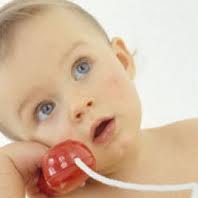

I recently took part in a webinar hosted by Speech Pathology Australia and presented by Patricia Eadie called “Developmental Pathways to Language Competence & Language Disorder”. The webinar provided in depth analysis of two ongoing research studies in to language development (one Australian, the other Norwegian) and focused on language impairment and a comparison of “late talkers” to their typically developing peers in language abilities and implications to schooling.
What is a “late talker”?
A “Late Talker” is a child between 18 and 30 months who has good receptive language skills (understanding of language), typically developing play skills, motor skills, thinking skills, and social skills, but has a limited spoken vocabulary for his or her age. Late talkersdo not have an underlying diagnosis (ASD, Down Syndrome, language delay etc), but have difficulty with their expressive (spoken) language.
By 2 years old a child should have a vocabulary of around 50+ words, and should be combining 2 words together between 24 and 30 months. Late talkers, are children who are using no words or fewer words than their peers, are limited in the types of words they use (e.g. nouns, verbs, adjectives, pronouns), and/or are using few or no word combinations (e.g. daddy go).
An example from the clinic:
Last year I saw Little Mr W for therapy. Little Mr W was referred because his parents had concerns about his language development. Little Mr W was 2 years, 4 months when I met him, and he was using less than 50 words, he did not use verbs (doing words) or adjectives (describing words) and he rarely combined two words together, apart from routine phrases such as “let’s go” and “what’s that?”. An assessment of his language showed that his receptive language skills were within the normal range and significantly higher than his expressive language skills. Little Mr W was diagnosed as a “late talker” and commenced therapy targeting his expressive language development.

So what does the research say about late talkers and later language skills?
Good language skills (language competence) are linked to positive development in children.
Language competence, that is, having a strong grasp on language (including understanding and using language), has a clear impact on a child’s development. Competent language skills allow a child to communicate their wants and needs, is essential to the development of social skills, is shown to have links with positive adolescent and adult health and supports literacy and academic achievement as well as verbal reasoning and problem solving skills.
Poll, G.H., & Miller, C.A. (2013). Late talking, typical talking, and weak language skills at middle childhood.Learn Individ Differ, 26, 177-184.
Ukoumunne, O. C., Wake, M., Carlin, J., Bavin, E. L., Lum, J., Skeat, J., . . . Reilly, S. (2012). Profiles of language development in pre-school children: a longitudinal latent class analysis of data from the Early Language in Victoria Study. [Research Support, Non- U.S. Gov’t]. Child Care Health Dev, 38(3), 341-349. doi: 10.1111/j.1365- 2214.2011.01234.x